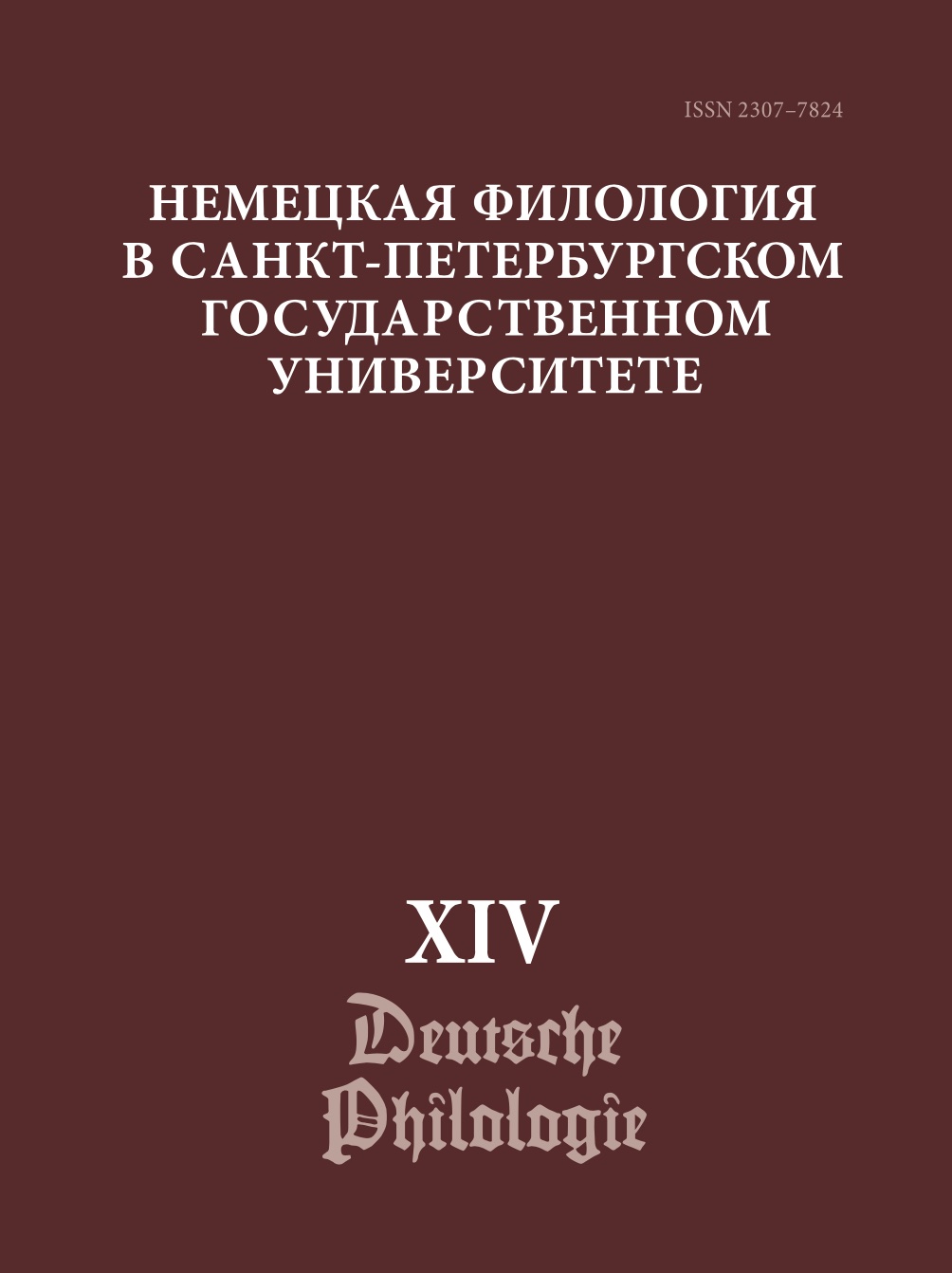WAYS AND MEANS OF ACTIVATING TEMPORAL AND LOCATIVE INFORMATION ABOUT THE WORLD IN THE TEXT: HOW REGULAR AND HOW DETAILED ARE THEY?
DOI:
https://doi.org/10.21638/spbu33.2024.111Abstract
The paper is devoted to the study of the principles of decomposition of information flow in communication, namely in a scientific journalistic text on the topic of “the history of the native country” which is always significant and relevant for people. Special attention is paid to the ways and means of activation, co-activation and objectification of temporal and locative information about the world as the type of knowledge, which, by virtue of its inherent properties, participates in the constitution of the worldview. The salience of the mentioned information is evidenced, specifically, by the language structure (e. g. by marking the tense category on verbs), the high content diversity of the complexes of relevant knowledge and the power of the multicore functional semantic fields of temporality and locativity with their multiple and diverse connections with other fields, primarily with the fields of aspectuality, modality, causality, finality, etc. The ratio of explicit and implicit information, objectified and co-activated in the reception of a certain type of text is analyzed. Through the study of different ways of activating, co-activating and objectifying temporal and locative information about the world in a specific textual space, the communicative and cognitive significance of the ability of heterogeneous and multilevel, primary and secondary nominative linguistic means to objectify various temporal and locative information is revealed — as mandatory and/or optional, basic for understanding the perceived situation and/or additional — when native speakers of a language as members of a specific culture solve various cognitive and communicative tasks.
Keywords:
temporality, locativity, ways of objectification of information about the world in the text, narrative, adverbials of time and place, primary and secondary nominative means, the ratio of the explicit and implicit in communication
Downloads
References
Литература
References
Downloads
Published
How to Cite
Issue
Section
License
Условия передачи авторских прав на статьи и рецензии, опубликованные в ежегодном периодическом издании «Немецкая филология» регулируются условиями Лицензионного Договора автора с Санкт-Петербургским государственным университетом. В соответствии с Лицензионным Договором опубликованные материалы находятся в открытом доступе, а авторам бесплатно предоставляется неограниченные возможности их распространения и самостоятельного архивирования.




